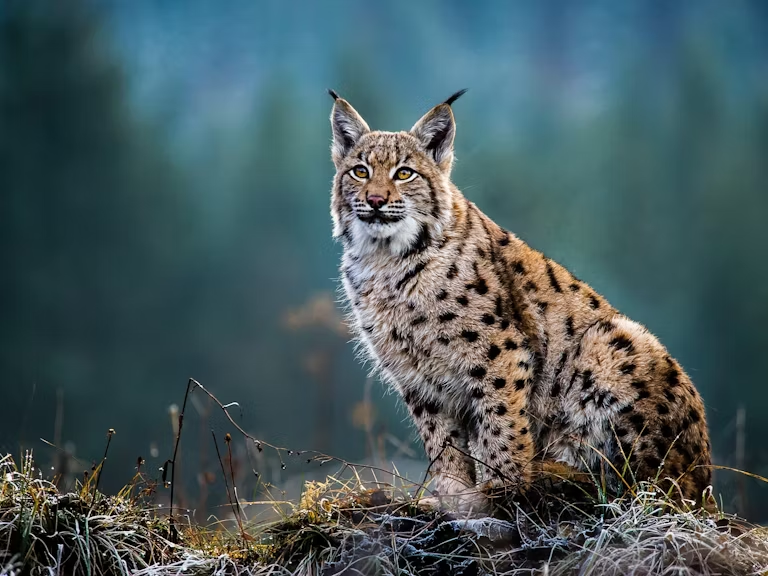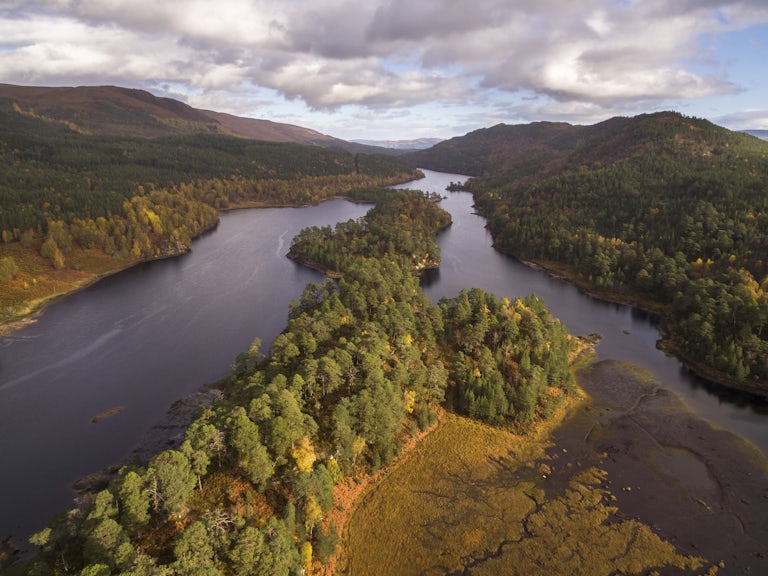Wild ideas to rewild Britain
Discover the bold ideas to drive rewilding across 30% of Britain’s land and seas by 2030 that came out of Wild Summit.

Published 24/09/2025
On 11 September we brought rewilding to The Wild Summit in Bristol, a new nature conference of over 1,200 people coming together to explore the solutions needed for the UK to meet its 2030 nature recovery targets.
We challenged the brightest minds in the nature movement to come up with wild ideas to unlock rewilding across 30% of Britain’s land and seas by 2030.
The mission
The UK pledged to protect 30% of land and sea for nature by 2030. But with just five years to go, the latest report shows we’re way off track.
Only around 6% of UK land is effectively conserved and managed for nature.
But it doesn’t have to be this way. We need big, joined-up change if we want to bring nature back across Britain.
It’s only by creating wilder, more natural landscapes and seascapes that we have any hope of meeting 30 by 30.
That’s why we need bold, wild ideas.
The wild ideas
At the Summit, we led an interactive session which had attendees work together to come up with bold solutions to unlock rewilding across Britain.
With over 100 people in attendance, groups were split into mission teams led by a mission leader, each tackling a key challenge:
“Its amazing what 100 people can come up with when asked to go wild with their ideas. Putting such bold solutions into action could really help turn 30% rewilding into mission possible!”
Rebecca Wrigley
Chief Executive
Public Imagination:
With Kim Somerville, Rewilding Britain
How do we inspire broad, diverse and mass public support for rewilding?
- Put young people in the lead — empower schools, youth groups and influencers to be the champions of rewilding.
- Make rewilding part of our everyday — normalise wilder gardens, parks and public spaces as part of community life.
- Launch a wild doorstep campaign – connect people directly with the nature around them, from urban parks to riversides and coastlines.
- Grow local champions – train and support visible community leaders who can inspire and mobilise their neighbours.
- Show benefits simply – use quick wins (local species returns and wilder urban spaces) to win hearts and minds.
Policy Levers:
With Matt Browne, The Wildlife Trusts
What policy shifts would unlock rewilding at scale?
- Create a National Nature Service — a new civic institution mobilising people, skills and resources for large-scale rewilding.
- Shine a light on land ownership — deliver full public transparency on who owns land, to open debate and drive accountability.
- National Estate for Nature — set aside areas for nature in the same way land was requisitioned for airfields during the war
- Explore transformative ownership models — from community ownership to public custodianship, shift power over how land is used.
- Tie policy to land management — ensure subsidies, tax breaks and regulation directly reward rewilding outcomes.
Scaling up rewilding:
With Kevin Cumming, Rewilding Britain
How can we turbocharge locally-led large scale rewilding across Britain?
- Launch Nature Recovery Clusters — locally led, landscape-scale projects working together to accelerate rewilding across regions.
- Connect people, not just places — embed access to rewilded areas into planning, with public transport links and affordable routes for everyone.
- Make rewilding part of learning — bring nature recovery into the school curriculum so every child grows up connected to wilder places.
- Rewild grey corridors — transform linear infrastructure like road verges, railways and riverbanks into thriving wildlife networks that link landscapes.
Future of Land Use:
With Martin Lines, Nature Friendly Farming Network & Bev Nichols, Forestry England
How can rewilding work hand-in-hand with other land uses i.e. food and timber production?
- Plan multi-use land smartly — use spatial allocation to balance rewilding with food, timber and community needs, focusing on priority areas agreed locally.
- Make rewilding financially viable — ensure economic viability through grants, subsidies, incentives and standardisation/marketing of nature-friendly produce.
- Reframe farming for the future — attract young people into farming as land stewards and nature managers, building pride and livelihoods in regenerative practices.
- Build trust from the ground up — create locally accepted champions, transparent communication and consensus-driven decision-making to win community confidence.
- Tell a new land story — shift the language and narrative around land use to break barriers, highlight shared benefits and foster cooperation between farmers, foresters, and rewilders as land managers.

Urban Wilding:
With Beth Collier, Wild in the City
What could large-scale rewilding look like across our towns and cities?
- Build rewilding into every plan — make rewilding a mandatory consideration in all new developments, with requirements for wild spaces, ponds, swift bricks and hedgehog highways.
- Empower communities — give local residents real decision-making power, community-set rewilding goals (e.g. “two trees per household”) and support to care for and champion nearby wild places.
- Shift urban culture — run education and awareness campaigns that explain why rewilded spaces look “messy,” celebrate them through maps, signage and events, and embed nature connection in schools.
- Design for people and wildlife together — improve lighting, access visibility and safety in urban wild spaces so everyone feels welcome, while ensuring habitats remain rich and functional.
- Invest in local nature stewards — move from traditional “tidy gardening” to training habitat managers who can nurture dynamic, wilder urban ecosystems.
Marine rewilding:
With Caitlin Turner
How can we move to the large-scale regeneration of our MPAs?
- Empower coastal communities — create funds for communities to establish and enforce their own MPAs and No-Take Zones.
- Support a just transition for fishers — provide financial incentives to shift from destructive practices to low-impact fishing.
- Ban bottom trawling and dredging across MPAs — outlaw these most damaging practices to allow marine life to bounce back.
- End ocean bargaining politics — stop treating the sea as a trade-off in negotiations; recognise it as a vital, finite life source to be safeguarded.
- Launch a public ocean campaign — from TV spots to billboards, build mass awareness and pride in restoring Britain’s seas.
Green growth:
With James MacGregor, The Lifescape Project
Rewilding as a driver of local green growth — how do we ensure nature’s comeback powers community renewal?
- Create a National Green Service — government and employers fund paid time for people to work in nature, boosting skills, pride and local renewal.
- Prescribe nature for health and productivity — expand social prescribing so time in rewilded landscapes supports wellbeing and reduces NHS pressure.
- Grow green jobs — invest in rewilding-linked employment, from land and marine management to eco-tourism and new local nature based enterprises.

At Wild Summit, people came together to explore the solutions needed for the UK to meet its 2030 nature recovery target.
Now it’s time to Think Big. Act Wild.
Three things you can do now
- Tell UK leaders to ban bottom trawling in England’s offshore MPAs. Add your name to this e‑action before the government consultation ends on 29 September.
- Ask the Scottish Government to declare Scotland the world’s first Rewilding Nation and commit to nature recovery across 30% of our land and seas. Sign the Rewilding Nation Charter.
- Get on board and join the movement by signing up to our mailing list. You’ll be the first to hear what else you can do to help unlock rewilding as a collective solution.
Stand up for nature
Thank you for acting wild.


Join the movement
Keep up to date with Rewilding Britain’s campaigns for change by joining our mailing list.
Sign up to our newsletter
Push for change
Urge your local leaders to act wild and commit to supporting the Rewilding Manifesto.
Email your MP


